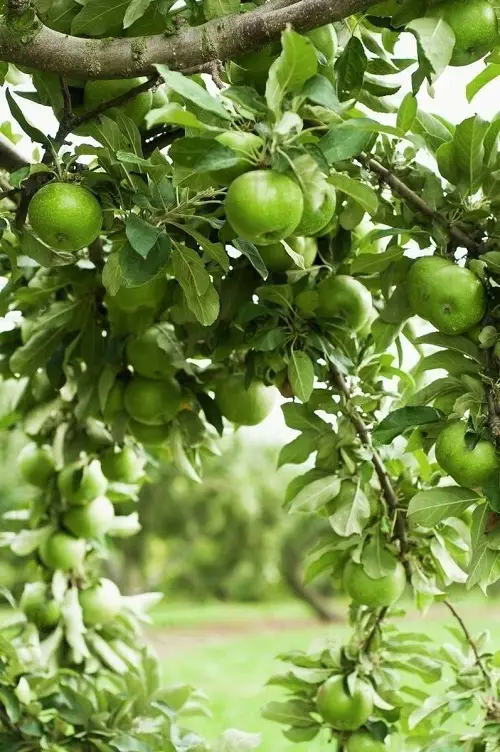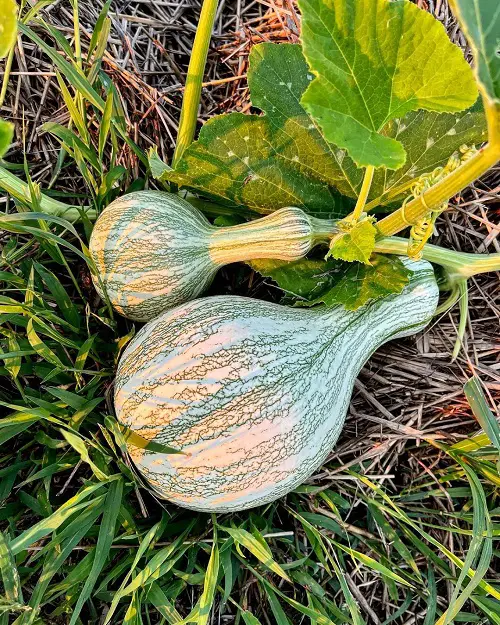From Pears, Kiwis, Limes, and Avocados to Granny Smith Apples, have a look at the Best Green Fruits with Pictures.
Green fruits can have a range of flavors, from sweet and juicy to tart and sour, and are rich in nutrients such as fiber, vitamin C, and antioxidants. Here are the Best Green Fruits with Pictures so you can eat and grow a variety of green delicacies.
Here is a List of the Best Palm Fruits
Best Green Fruits with Pictures
1. Green Apples
Botanical Name: Malus domestica
Green apples are sweet and crunchy Green fruits often used in pies, sauces, and other baked foods.
Green apples are a good source of fiber, vitamin C, and antioxidants and also contain polyphenols, reducing the risk of heart disease and improving gut health.
Growing Tip: To grow sweet and crunchy green apples, choose a sunny spot, and ensure well-draining soil. Prune regularly for better air circulation.
2. Pears
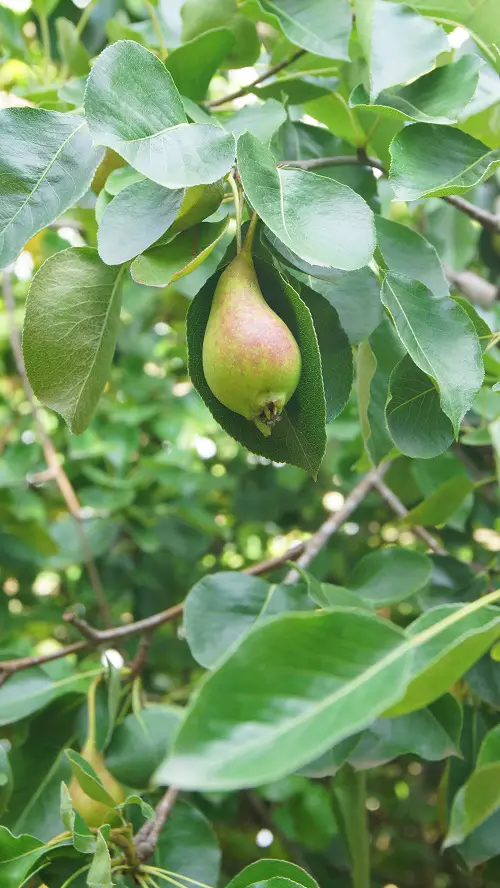
Botanical Name: Pyrus
One of the Green fruits, Pears, is soft and juicy and contains flavonoids that reduce inflammation and improve heart health.
There are wide varieties of pears, including Anjou, Bartlett, Bosc, and Comice, that vary in color, shape, and flavor.
Growing Tip: Pears thrive in well-drained soil and benefit from thinning to improve fruit size and quality—plant different pear varieties for cross-pollination.
3. Green Grapes
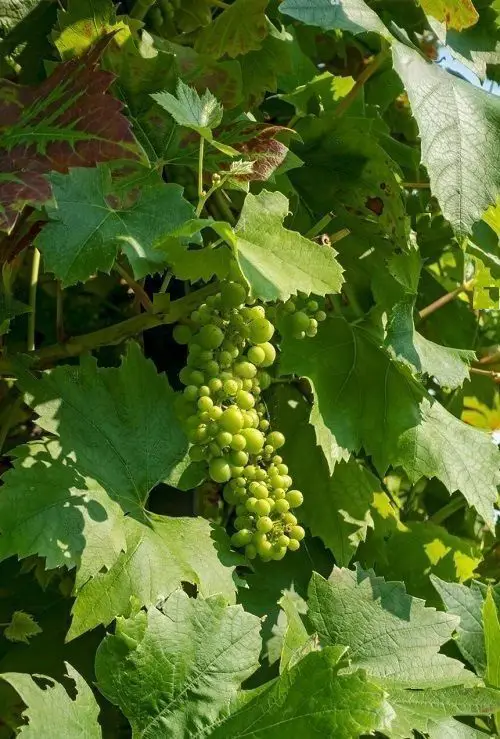
Botanical Name: Vitis
With a sweet and tarty flavor, Green grapes can be eaten raw as a snack or added to various dishes.
They can be sliced and added to salads, used as a topping for oatmeal or yogurt, or used to make jams.
Growing Tip: For juicy green grapes, plant in full sun, provide good support, and prune to allow proper air circulation to prevent disease.
4. Honeydew Melon
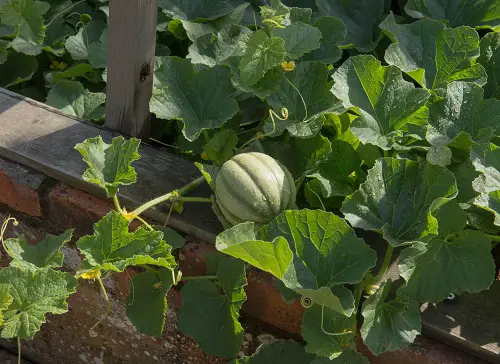
Botanical Name: Cucumis melo
Honeydew melon has green, smooth skin and sweet, juicy flesh. The Green melon fruit is a member of the cucumber family and is native to Africa; contains vitamin C, potassium, and folate and is low in calories.
Growing Tip: Grow honeydew melons in warm climates with sandy soil. Provide consistent watering and trellising to support the vines.
5. Mexican Sour Cucumber

Botanical Name: Melothria scabra
The Mexican sour cucumber, also known as “Pepino,” has a green, oblong shape and thin, smooth skin.
Growing Tip: Grow this Green Mexican fruit in containers or hanging baskets. They thrive in warm temperatures and well-drained soil.
6. Sweet Green Oranges
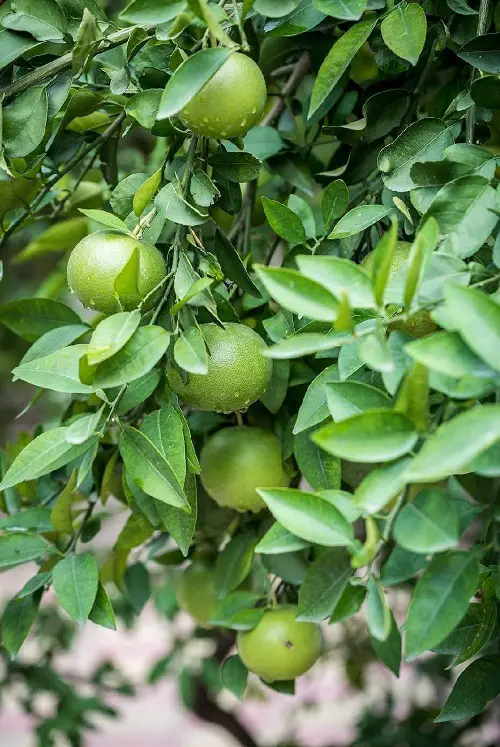
Botanical Name: Citrus reticulata × sinensis
Sweet green oranges have thick green skin and orange flesh. Their green color is due to green chlorophyll and orange carotenoids, and these fruits are hardy to USDA zones 9 to 11.
Growing Tip: Plant sweet green oranges in frost-free areas and provide regular irrigation during dry spells for optimal growth.
7. Bearss lime
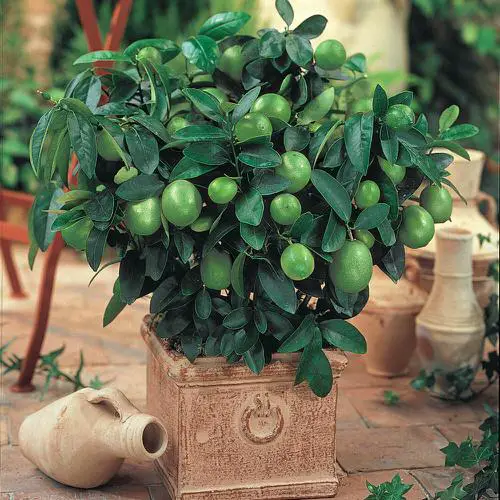
Botanical Name: Citrus × latifolia
Bearss lime, also known as Tahitian lime or Persian lime, is a type of lime grown in tropical and subtropical regions.
Bearss lime is a good source of natural sourness, making it a useful Green citrus fruit in many dishes and a garnishment for drinks and cocktails.
Growing Tip: Grow Bearss limes in pots or warm climates with well-drained soil. Prune to maintain shape and increase fruit production.
8. Sour Green Plums
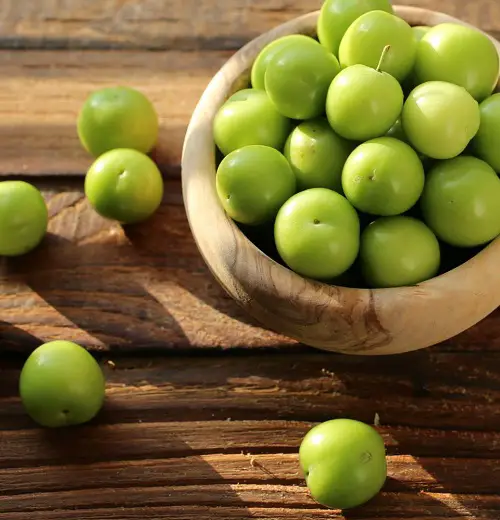
Botanical Name: Prunus cerasifera
Also known as Janerik plums, these Green fruits are a good source of natural sweetness, making them a healthy alternative to sugary snacks.
They can also be paired with a source of protein, such as cheese or nuts, for a more satisfying snack.
Growing Tip: Plant sour green plums in well-draining soil, and thin the fruit for larger, sweeter plums.
9. Ugli Fruit
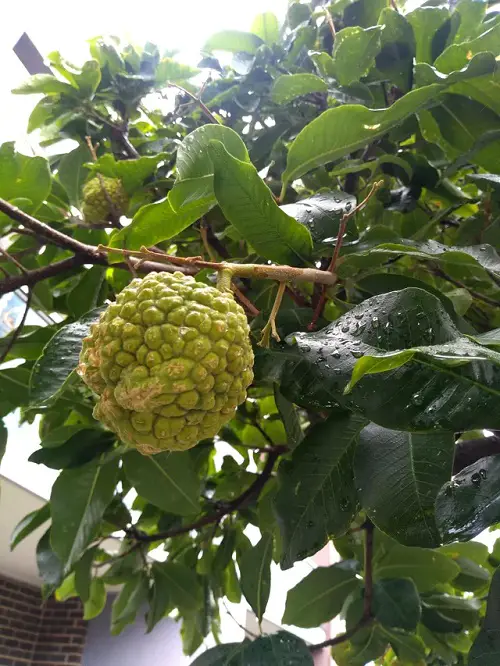
Botanical Name: Jamaican tangelo
Ugli fruit, also known as the Jamaican tangelo, is another of Green fruits cross between a grapefruit, an orange, and a tangerine. It has green, bumpy skin and sweet, juicy flesh.
Growing Tip: Ugli fruit needs warm, humid conditions to thrive. Regular pruning helps maintain its shape and promotes fruiting.
10. Gooseberries
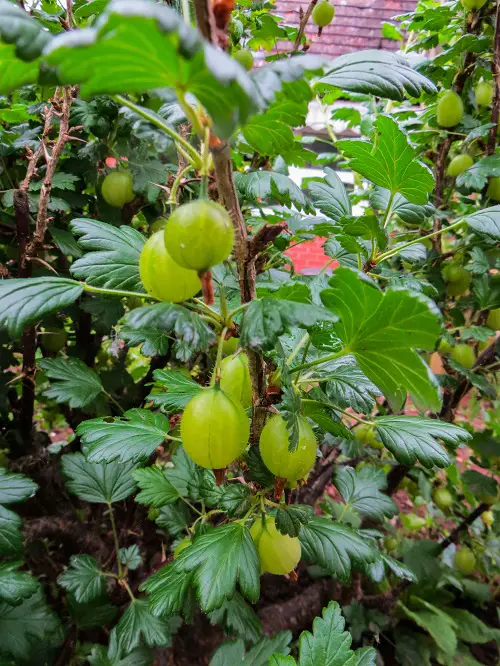
Botanical Name: Phyllanthus emblica
Gooseberries have green or red skin and a sour, tart flavor. They are native to Europe and are a popular ingredient in jams, pies, and other baked foods.
There are wide varieties of gooseberries, including American, European, and Himalayan.
Growing Tip: Plant gooseberries in cooler climates with well-drained soil. Prune to improve airflow and reduce disease risk.
11. Osage Orange

Botanical Name: Maclura pomifera
Osage orange, also known as hedge apple, has a hard, bumpy, green skin and a sour, bitter taste.
It is native to the central United States and is not typically eaten as a fruit but used as a natural insect repellent, a dye, and a wood preservative.
Growing Tip: While not typically grown as a Green fruit tree, Osage orange trees are hardy and thrive in various soils. Pruning helps shape the tree.
12. Avocado

Botanical Name: Persea Americana
Avocado, is a good source of healthy fats, fiber, and antioxidants and can be eaten raw as a snack, added to salads, sandwiches, and dips, or used to make smoothies or avocado toast.
Growing Tip: Avocado trees need well-draining soil and protection from strong winds. Regularly feed with balanced fertilizer for healthy growth.
13. Custard Apple
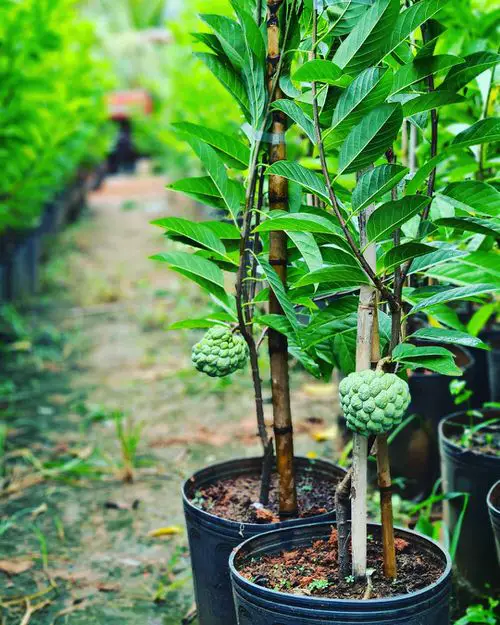
Botanical Name: Annona cherimola
Custard apple, also known as cherimoya or sugar apple, is a Green tropical fruit with green, bumpy skin and creamy, sweet flesh.
Custard apple contains vitamins and minerals, including vitamin B6, potassium, and magnesium.
Growing Tip: Plant custard apples in subtropical regions with well-drained soil. Protect from frost and provide consistent moisture.
14. Breadfruit
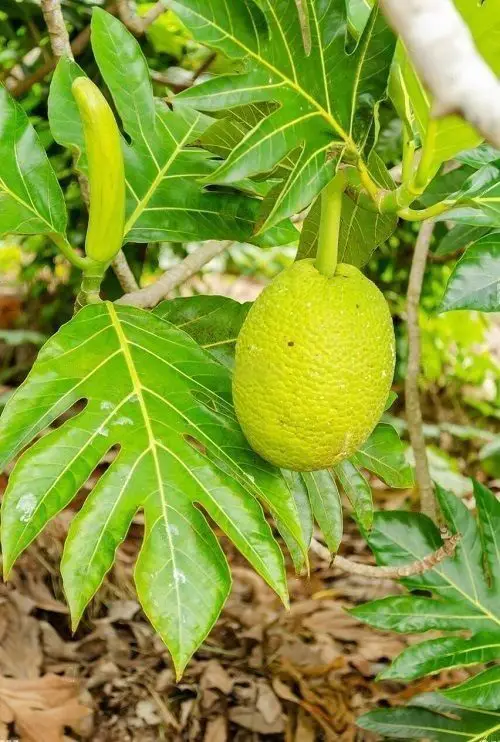
Botanical Name: Artocarpus altilis
Breadfruit has green, bumpy skin and starchy, bread-like flesh. It is often used as a starchy vegetable and can be baked, fried, or roasted, making these versatile Green fruits.
Breadfruit can also make flour, chips, or other food products.
Growing Tip: Grow breadfruit in tropical climates with well-draining soil. Pruning helps maintain manageable tree height.
15. Noni
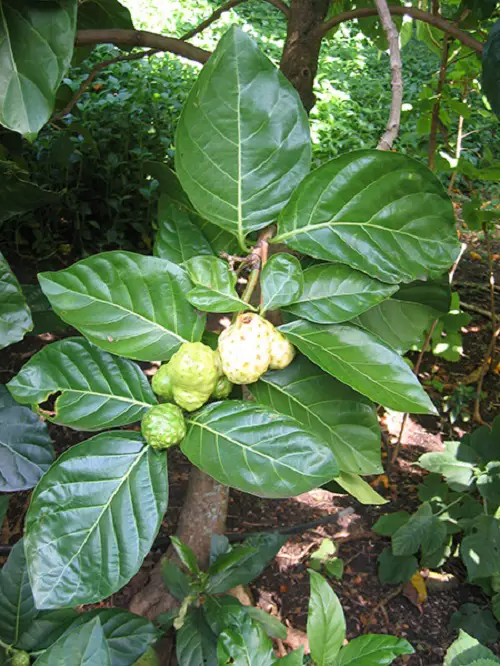
Botanical Name: Morinda citrifolia
Noni fruit, also known as Indian mulberry or beach mulberry, is a type of tropical fruit that has green, bumpy skin and a bitter, astringent taste.
Growing Tip: Noni plants thrive in tropical regions with well-draining soil and regular watering.
16. Jackfruit
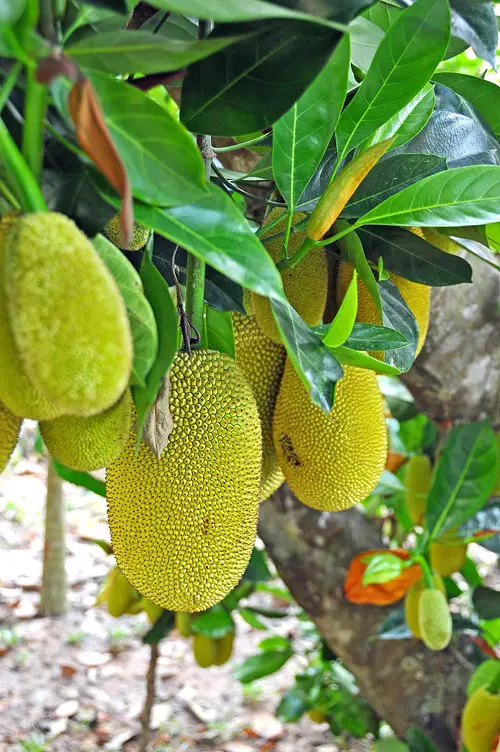
Botanical Name: Artocarpus heterophyllus
Still on the search for Green fruits? Jackfruit has green, bumpy skin and yellow, fibrous flesh. It is native to South and Southeast Asia and is a popular ingredient in many tropical countries.
Growing Tip: Grow jackfruit trees in warm, tropical areas with plenty of space. Pruning young trees encourages strong growth.
Learn How to Grow Jackfruit here
17. Durian Fruit
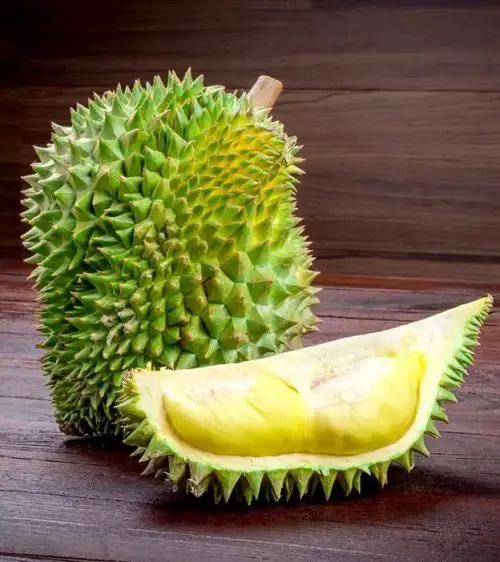
Botanical Name: Durio
Durian is a type of tropical Green spiky fruit that has green, spiky skin and creamy, rich flesh. Durian is typically ripe when it feels slightly soft and has a strong, fragrant smell.
Growing Tip: Durian trees require tropical conditions, well-draining soil, and patience, as they can take several years to bear fruit.
18. Guava
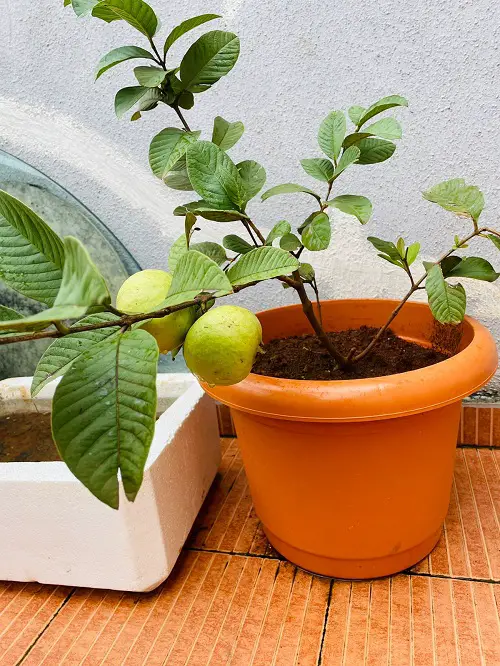
Botanical Name: Psidium guajava
Caribbean guava are tropical Green fruits that have green, bumpy skin and sweet, juicy flesh. Caribbean guava can be eaten raw as a snack or added to various dishes.
Looking for Green salad fruit? It is often used in salads, smoothies, and desserts and can also be used to make purees or jams.
Growing Tip: Guava trees are adaptable but thrive in well-drained soil with regular watering. Pruning improves fruit production.
19. Soursop
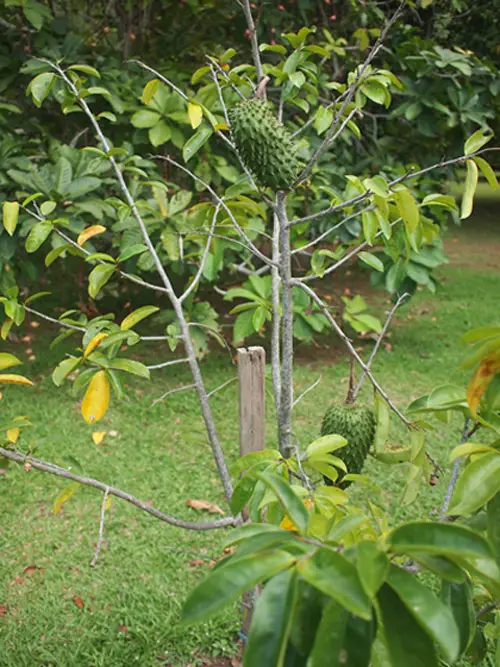
Botanical Name: Graviola
Looking for the Best green fruits? Soursop is a type of tropical fruit that has green, bumpy skin and white, pulpy flesh. This Green bumpy fruit is often used in salads, smoothies, and desserts and can also be used to make purees or jams.
Growing Tip: Plant soursop trees in tropical climates with well-draining soil. They need regular pruning for optimal fruiting.
20. Fuzzy Green Kiwifruit
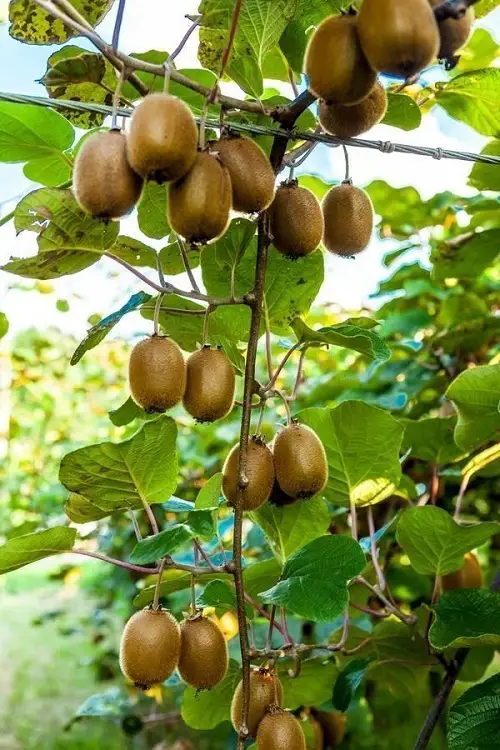
Botanical Name: Actinidia deliciosa
Fuzzy green kiwifruit, also known as the Chinese gooseberry, is a Green fuzzy fruit with fuzzy skin and sweet, juicy flesh. It is native to China and is a popular ingredient in many dishes.
Growing Tip: Grow kiwifruit vines in sunny, sheltered locations with well-drained soil. Regularly prune to control growth.
Need an Exotic fruit green? Check out the most exotic fruits in the world here
21. Green Star Fruit
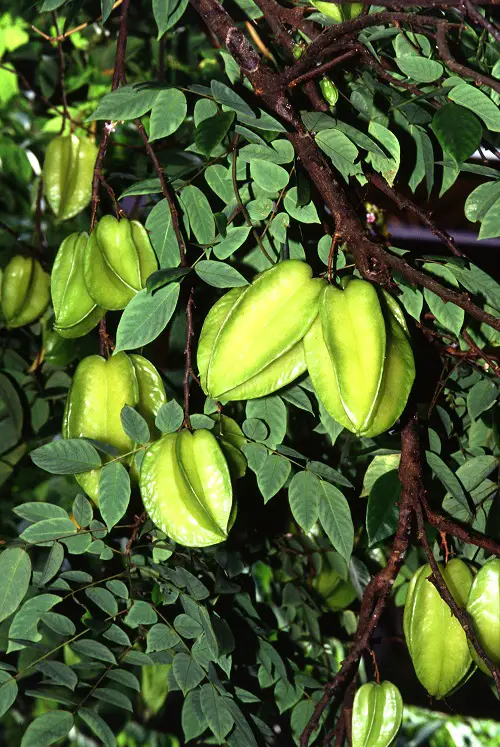
Botanical Name: Carambola
Green star fruit, also known as carambola, is a type of Little green fruit that has green, waxy skin and sweet, juicy flesh.
Growing Tip: Star fruit trees thrive in subtropical climates with well-draining soil. Pruning helps maintain shape and improve fruiting.
22. Chayote
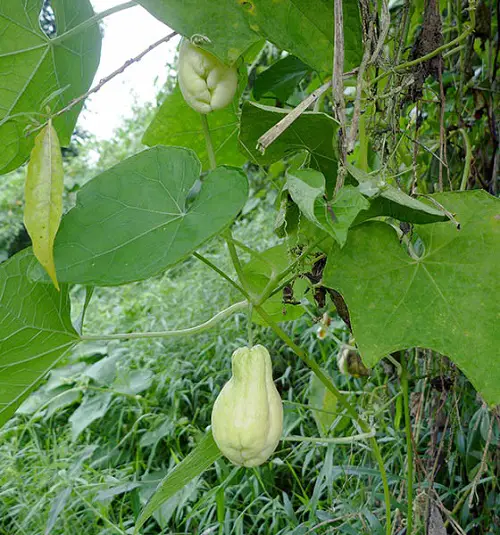
Botanical Name: Sechium edule
Chayote is a fruit with green, bumpy skin and crunchy, juicy flesh. It is native to Mexico and is a good source of fiber, vitamin C, and antioxidants.
Growing Tip: Plant chayote vines in warm climates with well-drained soil. Regular harvesting encourages more fruit production.
23. Zucchini
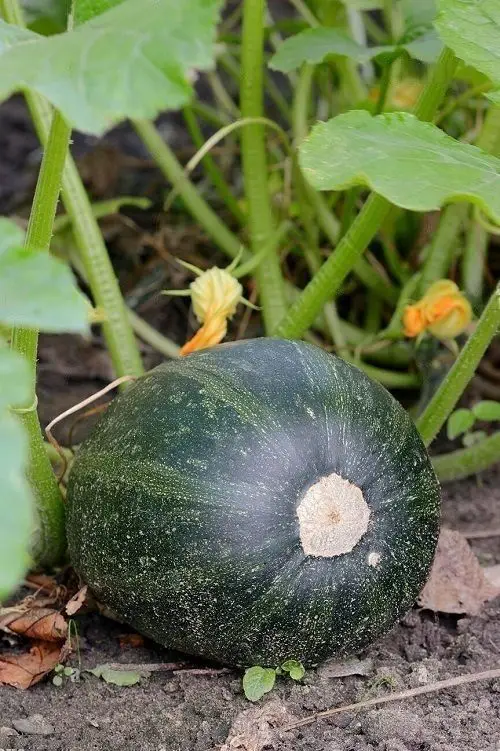
Botanical Name: Cucurbita pepo
Zucchini, also known as courgette, are Green fruits with smooth skin and crunchy, juicy flesh. It is often used in salads, soups, and stews and can also be baked, grilled, or fried.
Growing Tip: Zucchini plants prefer full sun and well-drained soil. Harvest young fruits for the best flavor and texture.
24. Cucumber
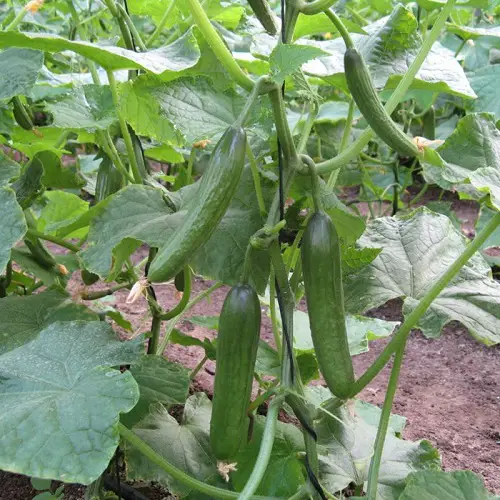
Botanical Name: Cucumis sativus
How can we skip cucumbers when talking about Green fruits? Cucumbers can be eaten raw as a snack or used in salads, sandwiches, used to make pickles, or other preserved products.
Growing Tip: Grow this Green pickly fruit in warm climates with well-drained soil. Trellising saves space and keeps the fruit clean.
Learn Everything About Growing Cucumbers On Trellis here
25. Green Mangoes
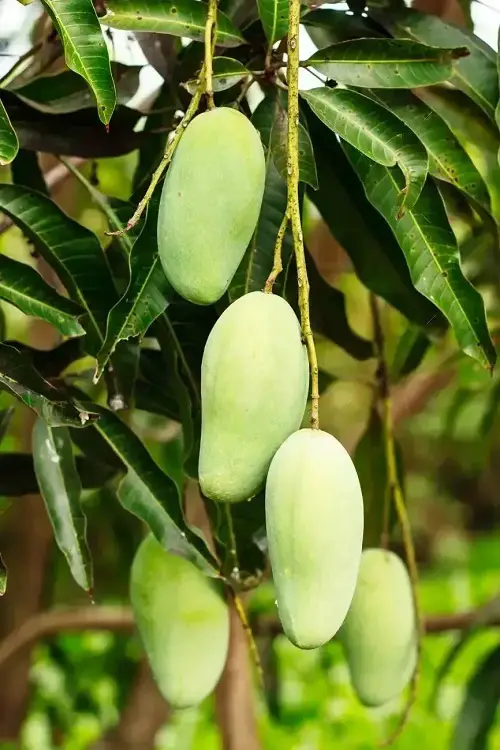
Botanical Name: Mangifera indica
Being a good source of natural tartness, these Green mango fruit are high in vitamins and minerals, including vitamin A, vitamin B6, and potassium.
Growing Tip: Green mango trees need full sun, well-drained soil, and protection from strong winds.
26. Feijoa
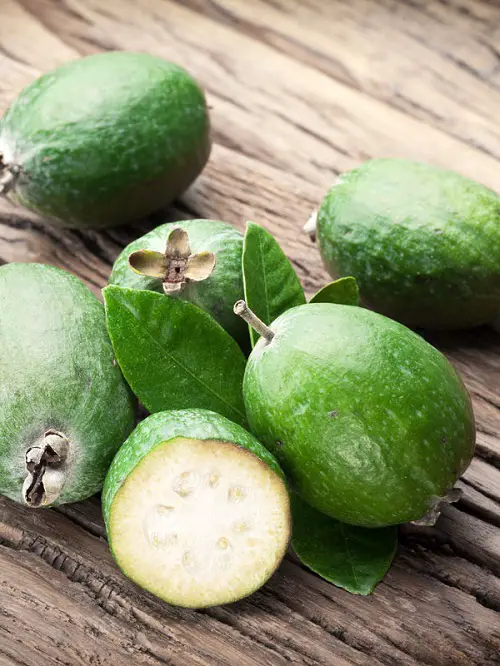
Botanical Name: Acca sellowiana
Feijoa, also known as pineapple guava, are Green fruits with bumpy skin and sweet, juicy flesh. These are a good source of fiber, vitamin C, and antioxidants.
Growing Tip: Plant feijoa shrubs in temperate climates with well-draining soil. Regular pruning helps maintain shape and encourage fruiting.
27. Papaya

Botanical Name: Carica papaya
Papayas are a good source of natural sweetness and have green, bumpy skin and sweet, juicy flesh. Papayas have small black seeds, and the fruit is used in salads and desserts.
Growing Tip: Papaya trees thrive in tropical climates with well-draining soil and regular feeding.
28. Cempedak
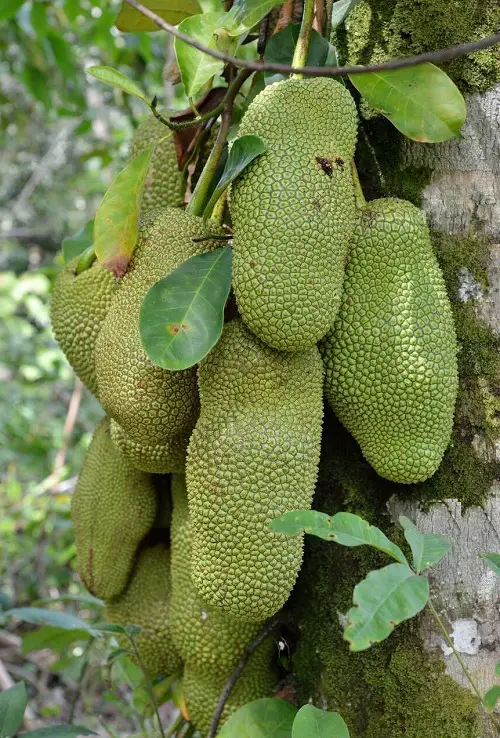
Botanical Name: Artocarpus integer
Native to Southeast Asia, the Cempedak is rich in vitamins and minerals, including vitamins A, B6, and potassium.
Growing Tip: It grows best in warm, humid climates with well-draining soil and plenty of sunlight.
Learn about Fruits That Grow on Vines here
29. Ber Apple Plant
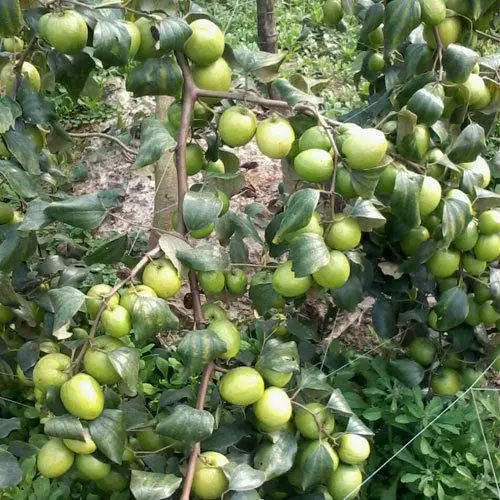
Botanical Name: Ziziphus mauritiana
Ber Apples are absolutely delicious Green fruits that are particularly popular in Asian countries.
Also called the Indian jujube or Chinese date, Ber has sweet, juicy flesh and is a good source of vitamins and minerals.
Growing Tip: Ber plants prefer well-draining soil with a slightly acidic pH. Pruning helps shape the tree and improve fruit quality.
30. Passion Fruit
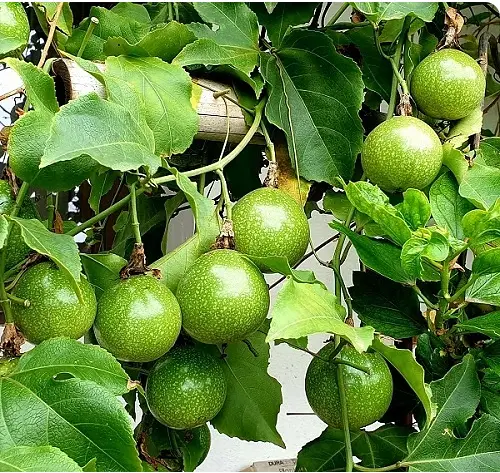
Botanical Name: Passiflora edulis
Green passion fruit is a type of tropical fruit that has a round or oval shape and thin, wrinkled skin.
Growing Tip: To grow passion fruit vines successfully, choose sunny locations with well-drained soil. Utilize pruning techniques to manage vine growth and stimulate prolific flowering.
31. Mulberry
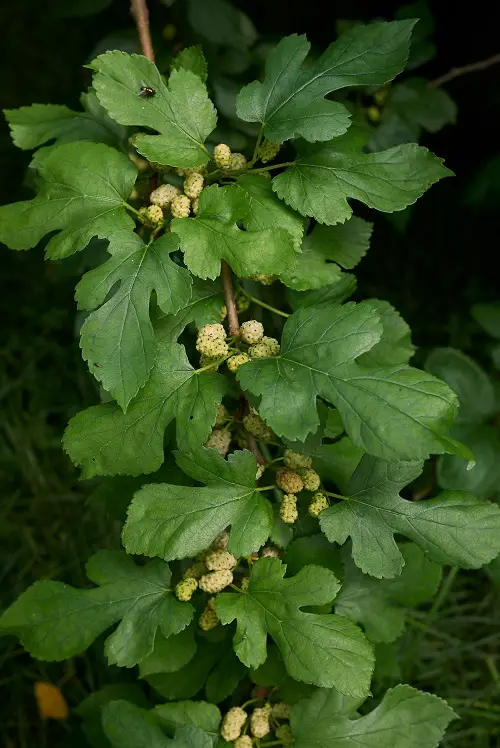
Botanical Name: Morus alba
Mulberry is native to Asia and is a popular ingredient in many dishes. Mulberry has a sweet, juicy flesh full of seeds and is a good source of vitamins and minerals.
Growing Tip: For thriving mulberry trees, provide them with full sun exposure and well-drained soil.
32. Pineapple
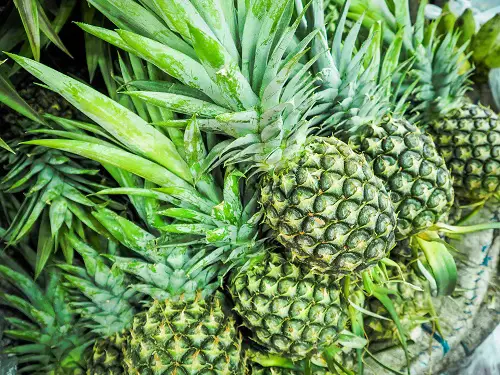
Botanical Name: Ananas comosus
Pineapple is a Crispy green fruit with a spiky exterior and a sweet, juicy interior. It is also a good source of vitamin C and manganese.
Growing Tip: Pineapple plants flourish in well-draining soil. At the optimal ripeness, harvest pineapples by gently twisting them off the plant.
Learn How To Grow Pineapples From A Pineapple At Home With This Easy Hack
33. Fig
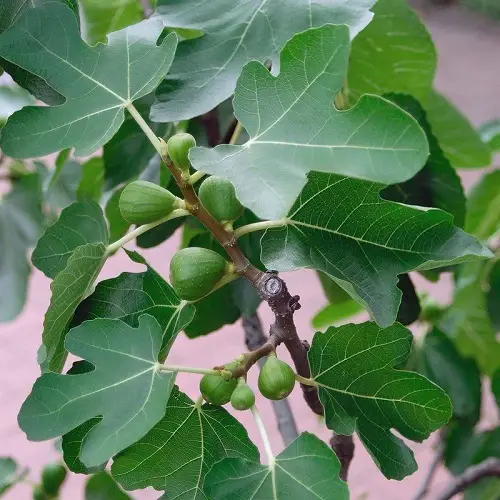
Botanical Name: Ficus carica
Figs have soft, sweet flesh and thin skin that is often eaten along with the fruit. They can be eaten fresh or dried, often used in baked goods, such as fig cookies and fig bars.
Growing Tip: To enhance fig production in sunny, well-draining soil, employ pruning methods to eliminate dead or diseased branches while maintaining the tree’s vitality.
34. Coconut
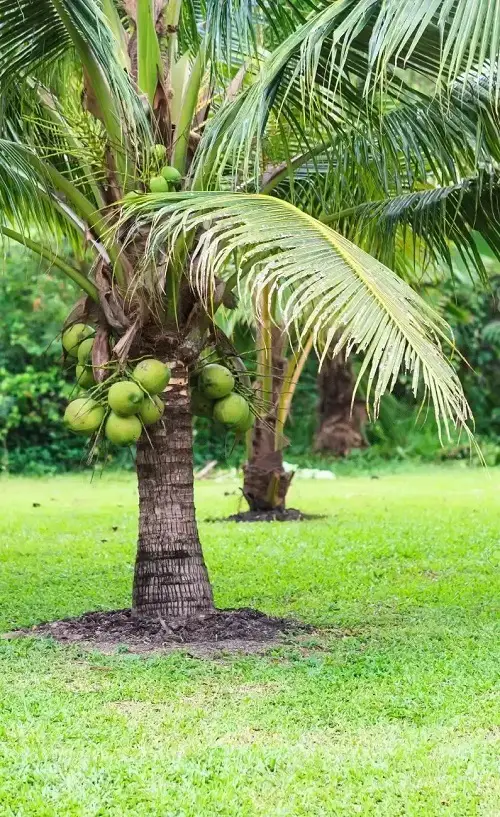
Botanical Name: Cocos nucifera
Coconuts contain a clear, slightly sweet liquid called coconut water, a popular drink in tropical countries.
Growing Tip: Grow healthy coconut palms by planting them in sandy soil, maintaining regular watering, and safeguarding them from strong winds.
35. Watermelon
Botanical Name: Citrullus lanatus
A people’s favorite when it comes to the Best green fruits, the Watermelon is a large, round Red and green fruit with a tough, green exterior and a sweet, juicy, red, or pink interior.
It is also a good source of hydration, as it is about 92% water.
Growing Tip: For successful Green round fruit growth, choose sunny spots with well-draining soil and ensure consistent moisture, particularly during the fruit’s development.
Learn some refreshing watermelon hacks for harsh summers here
36. Banana
Botanical Name: Musa acuminata
Green bananas are unripe bananas with green peel and starchy flesh. These Green fruits are often used in cooking and can be boiled, fried, or roasted. Green bananas are a good source of resistant starch, which can have various health benefits.
Green bananas are better as they contain less sugar than yellow ones.
Growing Tip: Grow in warm climates with well-drained soil; Green bananas thrive when mulched to retain moisture and protect against pests.
37. Green Acerola Cherry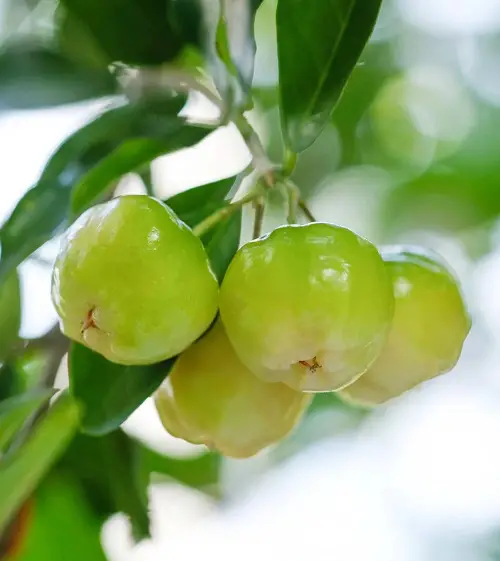
Botanical Name: Malpighia emarginata
Green acerola cherry is a Small green fruit that is packed with vitamin C and other antioxidants.
They have a tart flavor and are commonly used Green fruits in beverages, jams, and desserts.
Growing Tip: They need well-draining soil. You should shape and revitalize Acerola cherry trees through prudent pruning practices that remove dead branches.
38. Black Sapote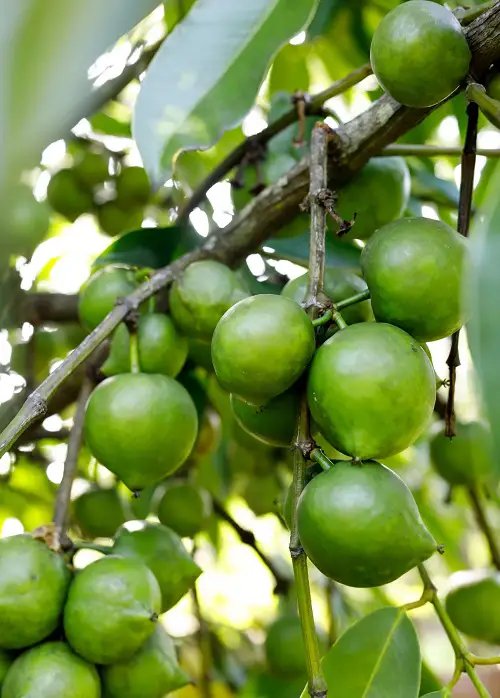
Botanical Name: Diospyros nigra
Black sapote, also known as chocolate pudding fruit, has green skin and creamy, chocolate-flavored flesh.
It is a Tropical green fruit native to Mexico and Central America and is often used in desserts and shakes. The skin of the fruit is a dull green.
Growing Tip: Black sapote trees require frost-free conditions and well-draining soil for optimal growth.
39. Mutsu (Crispin) Apples

Botanical Name: Malus domestica ‘Mutsu’
Mutsu apples, also known as Crispin apples, are a variety of Green apple fruit. They are known for their sweet and tart flavor, crisp texture, and green-yellow skin.
Mutsu apples are often used in pies, salads, and as a fresh snack. They are a good source of dietary fiber and vitamin C.
Growing Tip: Foster the growth of Mutsu apple trees by planting them in full sun with well-drained soil.
Here are Sweet Apple Varieties
40. Green Striped Cushaw Squash
Botanical Name: Cucurbita argyrosperma
Green Striped Cushaw Squash, also known simply as Cushaw squash, is a type of winter squash. It has green and white striped skin and sweet, orange flesh.
While often used as a vegetable in cooking, it is botanically a fruit because it develops from the plant’s flower and contains seeds. Cushaw squash is commonly used in soups, stews, and pies and offers a unique flavor and texture out of all Green fruits.
Growing Tip: To maximize the yield of your Cushaw squash in well-draining, sunlit locations, employ strategic pruning techniques that not only manage vine growth but also promote efficient air circulation.
FAQs
1. What Are Green Fruit?
Green fruits are fruits that can naturally maintain a green color even when ripe, such as green apples and green grapes. This green color is due to the presence of chlorophyll and other pigments that do not break down as the fruit ripens.
2. Are Green Beans a Fruit?
No, green beans are not fruits; they are vegetables. Green beans are the edible pods of bean plants and are considered a type of legume.
3. Is Green Pepper a Fruit? Are Green Peppers a Fruit or a Vegetables?
Yes, green peppers are technically fruits. They are the mature ovaries of the pepper plant and contain seeds. However, they are commonly used as vegetables in culinary contexts due to their savory flavor and are often referred to as bell peppers.

